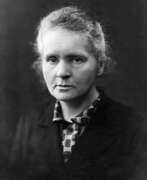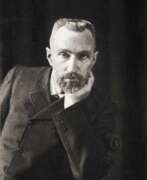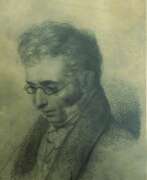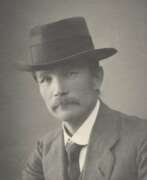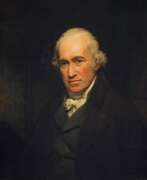Chemists 19th century
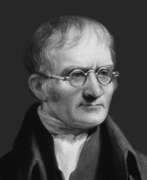

John Dalton was a British scientist, chemist and physicist, naturalist, and pioneer in the development of modern atomic theory.
In the 1800s, he was the first scientist to explain the behavior of atoms in terms of weight measurements. Some of the tenets of Dalton's atomic theory proved to be false, but most of the conclusions remain valid to this day.
Problems with his own eyesight led Dalton to research and describe the visual defect he himself suffered from in 1794 - color blindness, later named color blindness in his honor.
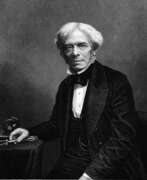

Michael Faraday was a British physicist and chemist, explorer and experimenter.
Faraday, because of his family's poverty, was unable to receive a formal education, but at the bookbinding shop in London where he worked, he read many books, including encyclopedias and textbooks on chemistry and physics. He persevered in self-education, attending hearings at the City Philosophical Society and later lectures by Sir Humphry Davy at the Royal Institution, who as a result took the able student on as an apprentice. In 1825 he replaced the seriously ill Davy in the management of the laboratory of the Royal Institution.
In 1833 Faraday was appointed to a research chair of chemistry created especially for him, where, among other achievements, the scientist liquefied various gases, including chlorine and carbon dioxide. His study of heating and lighting oils led to the discovery of benzene and other hydrocarbons, and he experimented extensively with various steel alloys and optical glasses. Faraday was an excellent experimentalist who presented his ideas in simple language. He is best known for his contributions to the understanding of electricity and electrochemistry. The concepts behind electromagnetic induction, diamagnetism, and electrolysis were some of his most important discoveries. His electromagnetic research formed the basis of the electromagnetic equations that James Clerk Maxwell developed in the 1850s and 1860s.
Between 1831 and 1855, Faraday read a series of 30 papers before the Royal Society, which were published in his three-volume Experimental Investigations in Electricity. His bibliography numbers some 500 printed articles. By 1844 he had been elected a member of some 70 scientific societies, including the St. Petersburg Academy of Sciences.
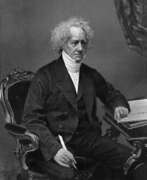

Sir John Frederick William Herschel, 1st Baronet was a British astronomer and son of the Uranus discoverer Wilhelm Herschel. He is credited with the first double star and nebula catalogues of the southern starry sky, which he observed during a five-year stay near Cape Town.
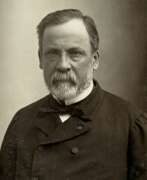

Louis Pasteur was a French chemist and the founder of microbiology and vaccination.
Pasteur received a bachelor of arts and sciences from the Royal College of Besançon and a doctorate from the École Normale in Paris, then spent several years as a researcher and teacher at the Lycée de Dijon. In 1848 he became professor of chemistry at the University of Strasbourg, and in the following year began to study the nature of wine fermentation, which began his revolutionary journey of most important scientific discoveries.
He invented a way to kill bacteria by boiling and then cooling the liquid, a process known today as pasteurization. Pasteur discovered the first vaccine in 1879 when he was exposed to a disease called chicken cholera. By accidentally exposing chickens to a weakened form of the culture, he demonstrated that they became resistant to the actual virus. Pasteur subsequently expanded his theory of germs and developed causes and vaccines against anthrax, cholera, tuberculosis, and smallpox, and the success of Pasteur's rabies vaccine in 1885 brought him worldwide fame.
Louis Pasteur's contribution to science, technology and medicine cannot be overemphasized. He pioneered the study of molecular asymmetry; discovered that microorganisms cause fermentation and disease; invented the process of pasteurization; saved the brewing, wine and silk industries in France; developed vaccines against the dreaded diseases anthrax and rabies, which saved millions of lives.
In 1873, Pasteur was elected an associate member of the Academy of Medicine, in 1882 - a member of the French Academy, and in 1888 in Paris was opened the Pasteur Institute. He was also awarded France's highest honor, the Legion of Honor.
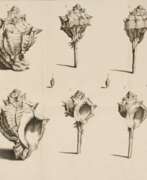

Michele Rosa was an Italian chemist and professor.
Rosa graduated from the Faculty of Medicine of the University of Bologna, then practiced in Venice and Rome. In 1766 he published An Essay on Clinical Observations, a pioneering work that brought him fame and earned him a professorship at the University of Pavia. In 1782 Rosa was appointed professor of practical medicine and president of the medical faculty of the new University of Modena. At Este he was elected president of the medical college and was in charge of sanitation.
In 1783 he published Letters on some physiological curiosities. In addition to physiology, epidemiology and public hygiene, Michele Rosa wrote works on natural science, antiquarianism and dietetics. Among these are the memoirs On Pores and Substances in Antiquity (1786) and On Gianda and Quercia (1801). In 1796 Rosa returned to Rimini, where he continued to teach and held some public offices.
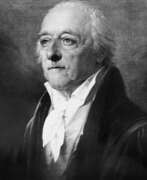

Nikolaus von Jacquin, full name Nikolaus Joseph Freiherr von Jacquin, also Baron Nikolaus von Jacquin, was an Austrian and Dutch scientist, professor of chemistry and botany, and director of the Vienna Botanical Garden.
Jacquin is considered a pioneer of scientific botany in Austria. He wrote fundamental works in botany, was the first to describe many plants, fungi, and animals, introduced experimental methods in chemistry, and successfully campaigned for the introduction of Linnaeus' system of plants in Austria. On behalf of Emperor Franz I, von Jacquin was in charge of the imperial gardens (including Schoenbrunn) and also led a scientific expedition to Central America from 1754 to 1759, from which he returned with an extensive collection of plants.
In 1768, Nikolaus von Jacquin was appointed professor of botany and chemistry at the Faculty of Medicine of the University of Vienna and director of the newly founded botanical garden, which he reorganized according to scientific principles. Nikolaus von Jacquin was a member of the Royal Society of London, a foreign honorary member of the St. Petersburg Academy of Sciences, and a correspondent of the Paris Academy of Sciences.
